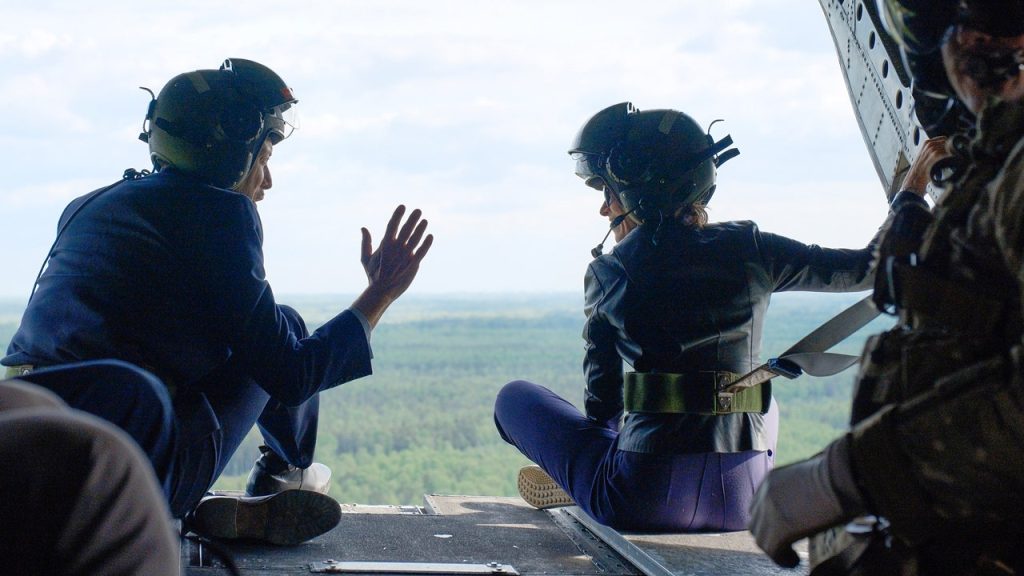Estonia’s Prime Minister, Kaja Kallas, expresses concern over Russia’s tactics of sabotage, electronic warfare, and spying against Western nations, particularly those along its border. As the war in Ukraine unfolds in Russia’s favor, defense measures are being strengthened in frontline nations such as Estonia, Latvia, and Lithuania. Kallas joins other leaders in calling on US and NATO allies to take a tougher stance against Russia’s actions, which are described as a “shadow war” against the West. Lithuanian President Gitanas Nauseda also warns of potential acts of sabotage, while Polish Prime Minister Donald Tusk highlights recent arrests linked to Russian secret services.
Amid increased hybrid operations by Russia, involving cyberattacks, election interference, disinformation, and attacks on opponents of President Vladimir Putin, Western officials are preparing for the upcoming crucial elections. Kallas shares an example of Russian military intelligence targeting a European country’s warehouse, leading to a suspicious fire later on. There is a growing urgency for a coordinated approach among Western nations to combat these threats on their soil. Estonia, with a history of aggressively pursuing espionage activity, has been proactive in countering Russian influence over the years.
Former Estonian President Toomas Hendrik Ilves notes the repercussions of inaction against Russia’s aggressive behavior, as some nations are hesitant to take a firm stand due to economic interests. The emphasis is on the need for stronger countermeasures against Russian attacks in Europe, as well as effective intelligence sharing among security services. Estonian officials and security experts highlight Russia’s strategy of outsourcing attacks to locals, making it difficult to trace them back to the Kremlin. An investigative journalist, Christo Grozev, experienced Russian interference firsthand, underscoring the importance of international cooperation to combat foreign influence operations.
Estonia continues to push for EU-wide sanctions to counter hybrid threats posed by Russia, with a focus on limiting visas for Russian envoys to deter espionage and spy activity. The country advocates for separate sanctions within the EU to dissuade intermediaries, such as organized crime figures and potential collaborators, from working for Moscow. While some countries have concerns about exposing such activities for fear of instability, others see it as a necessary deterrent against Russian interference. Grozev stresses the impact of naming and shaming Russian intelligence agents operating abroad, which can lead to consequences within the spy community and discourage younger Russians from joining the security services.
Russian aggression aims to sow fear and disrupt Western unity and support for Ukraine, according to Kallas and Vseviov. Putin seeks to utilize shadowy attacks and hybrid operations to undermine Western nations’ policies and unity. The threat of sanctions, visa restrictions, and international pressure is seen as essential in deterring Russian interference in Europe. Despite a lack of collective mechanisms for dealing with attacks, there is a growing recognition of the need for a coordinated response to counter Russian influence in the region. Leaders stress the importance of unity among Western allies to confront and deter Russian aggression effectively.


